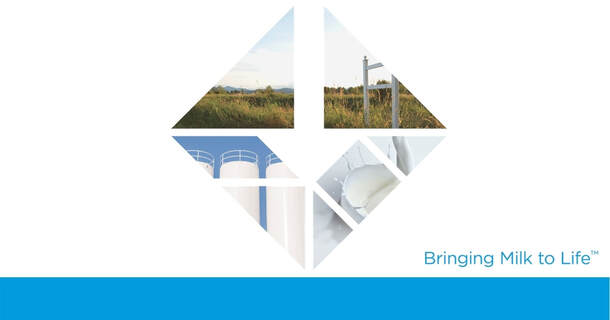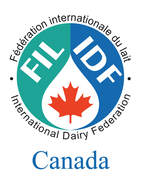|
The New Normal Heading into the fall, it appears as if the impacts of the COVID-19 pandemic will be with us for some time. Nevertheless, the dairy processing industry in western Canada continues to adapt and respond with increasing emphasis on business recovery. The Western Milk Pool marketing boards report that the supply situation is now at a “steady state” with only occasional skimming and no recent milk disposal. Processor orders are being fulfilled and some interprovincial milk movement is taking place to maintain stability of supply. After experiencing a lot of volatility in the first few months, retail demand seems to have stabilized but the food service market is still slow to recover. In British Columbia, the Western Dairy Council joined the BC Dairy Association and the BC Restaurant and Food Service Association in asking the Minister of Agriculture to support joint marketing initiatives to boost local restaurant sales. What that support might look like is now up in the air following the Province’s decision to go to the polls on October 24. In response to the current situation, WDC members elevated health and safety protocols at their facilities throughout the summer. In August WDC surveyed its Board members and found near-universal face mask requirements and measures to facilitate social distancing at their plants. Most have contact tracing protocols and some have introduced temperature testing for employees and visitors. Despite the long road ahead, the industry is taking a proactive approach to implementation of, and compliance with, the aforementioned protocols. We recognize the hard work that goes into providing fresh, nutritious food for our communities and we want to thank our members for being conscientious in protecting their employees, service providers and supply chain partners by enhancing safety measures and putting these protocols in place. US Expresses Concerns in the First 60 Days of CUSMA The Canada-US-Mexico Agreement (CUSMA) came into effect on July 1, 2020 and already the United States has started to voice concerns about its partners’ fidelity to the new trade agreement. On August 13, 114 members of the House of Representatives penned a letter to US Trade Representative Robert Lighthizer and Secretary of Agriculture Sonny Perdue urging swift use of the agreement’s consultation and enforcement measures to “ensur(e) faithful implementation of its provisions by our trading partners.” In particular, Canada’s administration of Tariff Rate Quotas (TRQs) and measures to eliminate Classes 6 and 7 were identified as elements of the agreement that demanded attention, as were Mexico’s commitments pertaining to commonly used cheese terms. On August 25, twenty-five US Senators signed a similar letter to the USTR and the Secretary of Agriculture. Provincial Milk Boards Consider Audit Cost-Sharing Options Milk utilization audits are an essential part of the administration of the dairy industry’s supply management system. How the industry pays for milk utilization audits in each province has been deliberated for many years. Over the past year, discussions have taken place between the Western Dairy Council and Alberta Milk on ways of updating the province’s decades-old cost sharing agreement between producers and processors. And this summer, the BC Milk Marketing Board presented a proposal to share audit costs with processors in BC. The BC proposal can be viewed at www.westerndairycouncil.com/news. BCMMB has requested feedback from processors by October 23; comments can be submitted directly to the Board or through the Council at [email protected]. WDC Annual Meeting The Western Dairy Council held its third Annual Meeting on July 21, 2020 via videoconference. We are pleased to announce that the entire Board of Directors was returned including six directors who were re-elected to new two-year terms. WDC 2020-2021 Board of Directors: Gilles Froment, Lactalis Canada Eric Given, Saputo Dairy Products Canada Tony Gusikoski, Lactalis Canada Ursula Klein, Agrifoods International Cooperative Ltd. Claudine Martel, Agropur Coopérative Russ Rimmer, Avalon Dairy Christine Rohrbach, Gay Lea Foods Co-operative Limited Cathy Sanders, Foothills Creamery Ltd. Mike Szewczyk, Agropur Coopérative Catherine Tokarz, Saputo Inc. Phil Vanderpol, Vitalus Nutrition Inc. Eric Wallman, Bothwell Cheese In addition, the following individuals were named as Officers of the corporation:
HTST/VAT Pasteurizer Operator Licensing Course Registration for the HTST/VAT Pasteurizer Operator Licensing Course taking place October 20-23 is now full. The next session will be offered in the spring with more details to follow. Recycling Regulations for Milk Containers On June 29, the Government of British Columbia approved changes to its Recycling Regulation, which will see milk containers added to the province’s deposit/refund system effective February 1, 2022. In BC, most beverage containers in the deposit/refund system are managed by Encorp Pacific (Canada), an industry-owned stewardship agency operating under the Return-It brand. Encorp’s representatives met with WDC’s Board of Directors this month for consultation and, based on those discussions, it is expected that the two organizations will work together in the coming year on an implementation plan. Recycling regulations are evolving across Canada. Quebec announced that milk containers will be brought into its deposit/refund system in 2022; Ontario is reforming its blue box program, and Alberta is in the early stages of developing its Extended Producer Responsibility initiative which is expected to include non-milk container dairy product packaging. Concern Over Retail Fees At the beginning of August, a joint statement by leading Canadian farm and consumer product associations was released to the media and the federal and provincial governments expressing deep concern over recent fees imposed by large retail chains on their suppliers. Dairy processors lent their voices to the concerns through the national organization, Dairy Processors Association of Canada (DPAC), arguing that the arbitrary fees and penalties imposed by large grocery retailers negatively impact Canadian consumers by forcing Canadian farmers and food and beverage processors to lower investments in productivity and product innovation. Requiring food and beverage suppliers to offset the costs of retailers’ investments in their operations comes at the expense of farmers’ and processors' investments in their own Canadian facilities, therefore impacting Canada’s food security. With the statement,the associations have asked the federal and provincial governments to implement a code of practice to govern commercial practices between retailers and their suppliers, similar to codes that have been implemented in other countries. The full statement can be found at www.westerndairycouncil.com/news. Member Profile: Vitalus Nutrition Vitalus Nutrition is a leading Canadian supplier of specialty dairy-based ingredients for global food, beverage and nutraceutical industries. With deep roots in British Columbia and in the City of Abbotsford for many decades, the company has over 65 years in technical food processing expertise. Vitalus operates two plants, one in Abbotsford, British Columbia which produces milk protein concentrates and isolates, cream, and milk permeate. At this facility, milk permeate is transformed into GOS (galacto-oligosaccharides) under the brand name VITAGOS™. GOS is a dairy-derived prebiotic and is a critical ingredient in Infant Formula and other nutritional applications. Vitalus’ GOS plant is the only commercially operating plant in North America. In addition to the Abbotsford facility, the company has a joint venture in Winnipeg with fellow WDC member Gay Lea Foods Co-operative Limited. MDI is a state-of-the-art facility manufacturing butter and milk protein concentrates and isolates. Vitalus products are in high demand, and its milk protein isolate is integral in products such as Ensure, Atkins, and PepsiCo. Especially in current global pandemic circumstances, its products are used in medical applications by supporting critical Health Facilities such as hospitals, including ICU nutrient feeding products. Making an impact in the communities that the company operates in is important to Vitalus. Locally, employees from both facilities actively volunteer with local charity groups. Recently, Vitalus employees have supported their respective community food banks by sorting and packing food boxes. As the upcoming October holiday approaches, the team at Vitalus is thankful to be part of the Agriculture industry and grateful for the opportunities it affords them.
|
AuthorNews and Articles are posted by Members of the Western Dairy Council. Archives
September 2023
Categories
All
|




 RSS Feed
RSS Feed
